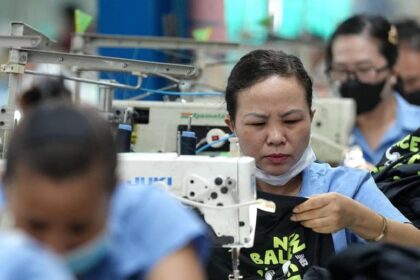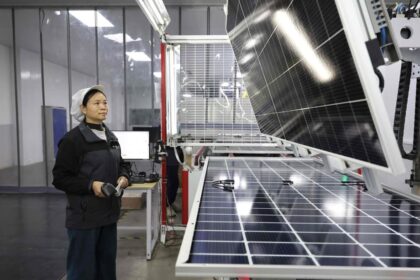A high stakes clash of tech ambitions and telecom rules
Thailand has turned down a proposal from SpaceX to operate Starlink internet services through a wholly foreign owned company, citing national security and telecom ownership rules. The decision, delivered by the Ministry of Digital Economy and Society, puts a spotlight on how countries balance fast satellite connectivity for remote regions with control over critical digital infrastructure. It also raises questions about market structure in Thailand’s telecom sector and about the conditions Starlink seeks when entering new markets.
- A high stakes clash of tech ambitions and telecom rules
- Why Thailand said no
- What Starlink sought, and why full control matters to SpaceX
- Could a rural access plan coexist with local operators
- The claim about a White House requirement
- How neighbors are handling Starlink
- Security, sovereignty, and how satellite internet carries data
- Possible paths to a compromise
- Market stakes for consumers and industry
- What happens next
- What to Know
Digital Economy and Society Minister Chaichanok Chidchob met recently with Oliver Edelmann, a senior government affairs representative at SpaceX, to discuss the company’s plans. The minister said SpaceX had insisted that investment take place through a company fully owned by foreign interests. Thai law does not allow that in telecommunications. He added that officials have asked the Prime Minister’s Office to verify a claim that a White House statement required such a structure, a claim Thailand has not confirmed.
SpaceX told Thai officials that Starlink aims to extend internet access to remote areas rather than compete head to head in the mass market. Thai authorities countered that even a high quality satellite service could reshape consumer choices, disrupt existing operators, and change the national market in ways that would be hard to manage.
Introducing his stance in public remarks, the minister tied ownership and control to digital security. Chaichanok said the country will not allow a fully foreign owned telecom operator that touches critical infrastructure and lawful access systems.
The minister said: “If the company wants to set up a wholly owned firm, there will be no opportunity to cooperate, as telecom ownership is directly linked to Thailand’s digital security system.”
He also addressed the possible market shock if Starlink entered under its preferred structure.
Chaichanok added: “No matter how good the Starlink system is, the entire ecosystem must be considered, as it could alter the entire market structure.”
Why Thailand said no
Thailand’s telecom rules require companies that operate networks and serve the public to meet Thai ownership and control tests. For the license category that covers building and operating networks for public service, foreign shareholders cannot hold a controlling stake, and control provisions such as board composition, voting rights, financing, and key decision making are scrutinized. Regulators also apply a foreign dominance review that looks beyond shareholding to the actual control of management and operations.
These standards exist for several reasons. Telecom networks connect citizens, businesses, government, and critical services, and they carry sensitive data. Authorities require lawful interception capability, emergency access, and compliance with court orders. They also want the ability to enforce quality, coverage, and consumer protection obligations. In practice, this means regulators favor license holders that are subject to Thai jurisdiction and that provide clear lines of accountability inside the country.
The National Broadcasting and Telecommunications Commission has indicated it will not rewrite the rulebook for a single applicant. The regulator also has broad discretion to approve, delay, or reject applications where ownership, control, or national interest concerns remain unresolved. Applicants must demonstrate genuine Thai control where required, rather than rely on nominee structures or layered contracts that shift power offshore.
From the government’s perspective, letting a fully foreign owned operator run a nationwide service would undercut the policy foundation of the sector. Officials say they remain open to cooperation that fits within existing law, yet are unwilling to abandon the core principle that telecom infrastructure must stay under Thai control.
What Starlink sought, and why full control matters to SpaceX
Starlink is SpaceX’s low Earth orbit satellite network. It uses thousands of satellites and small ground terminals, and it can provide high speed internet to places with limited fiber, copper, or mobile coverage. Starlink often asks for a corporate structure that gives it tight control over operations, technology, and customer management. There are several reasons for this approach.
First, SpaceX builds a vertically integrated system that depends on rapid updates, proprietary ground equipment, and global traffic management. Second, the company tries to protect its intellectual property and production know how across borders. Third, it faces geopolitical risk in multiple regions, and a uniform operating model can simplify compliance and reduce delays.
SpaceX has also asked some suppliers to diversify manufacturing footprints. Industry sources say the company encouraged vendors with facilities in Taiwan to expand production in Southeast Asia because of geopolitical risk, with moves to Vietnam and Thailand among the options. That approach shows a preference for control and risk reduction across the supply chain. The same mindset likely applies to corporate ownership and local operations for service delivery.
In some markets, Starlink has adopted different entry models. It has partnered with local firms as distributors or enterprise resellers. In others, regulators have allowed more flexible foreign ownership. These country by country outcomes reflect different legal systems and different levels of comfort with foreign control of telecom services. In Thailand, the ownership limit is clear, and regulators have signaled they will not make an exception.
Could a rural access plan coexist with local operators
Starlink frames its service as a gap filler for hard to reach places, farms, mountains, islands, disaster zones, and remote sites. Thailand has extended fiber and mobile broadband widely, but hard geography still leaves pockets with weak or no service. For households beyond the reach of fiber and for agencies that need resilient backup communications, a satellite option can help.
The concern for Thai officials and incumbent operators lies in how an attractive satellite package might move beyond niche uses. A service that offers competitive speeds and simple self install hardware can pull customers from fixed wireless, copper DSL, and even mobile broadband, especially where service quality is uneven. It can also win contracts in enterprise, maritime, aviation, and oil and gas, categories that often pay higher margins and help finance rural coverage from local operators.
If a foreign controlled network captured these segments, incumbents would face revenue pressure without the same ability to respond. Lower cash flow for local players could slow fiber buildouts and 5G densification in towns and districts that still need investment. Thai authorities say they have to weigh rural inclusion against the risk that a new entrant reshapes the entire market and reduces the long term capacity of domestic providers to invest.
The claim about a White House requirement
Thai officials said SpaceX cited a White House announcement as the reason it must invest through a fully foreign owned entity. The minister has asked the Prime Minister’s Office to check whether such a policy exists and whether it applies to Thailand. He also noted that the condition was not reflected in recent trade documents that Thailand signed in the region.
Some voices in the Thai telecom community have linked the Starlink request to larger trade talks, including discussions about import tariffs on Thai goods headed to the United States. Those claims have not been verified by public documents. What is clear is that Bangkok is trying to balance national security rules with export interests, and it wants to avoid unintended consequences for trade while it holds the line on telecom ownership law.
How neighbors are handling Starlink
Across Southeast Asia, regulators are moving at different speeds. Vietnam approved a pilot for Starlink earlier this year, allowing service for a five year period with a cap of 600,000 subscribers and no foreign ownership limit. The pilot approach gives Hanoi room to study market effects and security controls before any permanent decision.
Elsewhere in the region, some governments have welcomed Starlink to support schools, clinics, islands, and remote provinces. In the Philippines, the company launched with a local partner at the outset. Malaysia and Indonesia have also issued licenses, each with its own conditions on gateways, spectrum coordination, and consumer protection. These mixed models show that regulators can encourage rural connectivity while building local compliance mechanisms. Thailand’s system is more prescriptive about ownership, and officials say that foundation will guide any future path.
Security, sovereignty, and how satellite internet carries data
Security concerns are not only about corporate ownership. They are also about how traffic flows. Starlink satellites talk to user terminals on the ground and to ground stations that connect into the public internet. The network also uses satellite to satellite laser links. Those links allow traffic to skip local ground stations and hop across borders in space before downlinking elsewhere.
For regulators, this creates two challenges. First, lawful interception. When courts issue orders, operators must be able to identify users and provide access to specific communications under local law. Second, data sovereignty. Governments want confidence that sensitive traffic from inside the country, including government and critical infrastructure data, can be kept within reach of local oversight. These requirements can be met with domestic gateways, clear corporate accountability inside the country, and technical controls. They are harder to enforce if a network routes data internationally by default and if the service operator is not locally controlled.
Thailand’s stance is consistent with these concerns. Authorities want a structure that ensures compliance with lawful access rules and that allows enforcement against a local entity, led and controlled by Thai owners under Thai law. The debate, then, is less about the benefits of satellite connectivity and more about the conditions under which it can operate.
Possible paths to a compromise
There are several options that could bring satellite connectivity to remote Thai communities while honoring existing rules.
- A Thai majority joint venture: Starlink could partner with a qualified Thai shareholder group that holds majority voting power and control. The venture would seek the appropriate license, keep technical control functions inside Thailand, and show clear compliance with foreign dominance tests.
- Enterprise and government channels through licensed partners: Equipment could be sold to agencies or companies via Thai licensed operators that hold the customer relationship and ensure compliance with security and data requirements.
- A pilot program with caps and domestic gateways: Authorities could consider a time bound pilot, with subscriber caps and service constraints, if ownership and control criteria are met. Gateways located on Thai soil and audited lawful access systems would be central features.
- Resale or wholesale models: A Thai carrier could act as the service provider on record, bundling Starlink capacity for specific uses like disaster response, maritime safety, or remote schools, while the foreign technology provider supplies the satellite layer.
Any of these models would still require careful documentation to satisfy ownership, control, and technical compliance. Given the regulator’s discretion and the legal standards in place, applications would likely face detailed reviews of governance, financing, operations, and security controls.
Market stakes for consumers and industry
For consumers in remote areas, satellite internet can be a lifeline. In fishing communities, mountain villages, border districts, and conservation zones, a simple satellite terminal can deliver a connection where towers or fiber are impractical. For emergency response, a portable terminal can restore communications when floods, landslides, or storms damage terrestrial lines.
For the wider market, a new entrant with national reach and attractive pricing could pressure incumbents. Fixed line and mobile operators might lose higher value customers in areas where quality is inconsistent. On the other hand, competition can also push investments and improve service. The policy question is how to capture benefits for the unconnected while protecting the stability of a sector that funds nationwide coverage obligations.
Thailand’s satellite ecosystem also includes domestic players that operate spacecraft, teleports, and broadcast services. Any move to welcome a large foreign satellite operator in consumer broadband will be judged against its effect on domestic industry development, employment, and technology transfer. Policymakers want growth in space and communications manufacturing in Thailand, and they may prefer structures that embed new activity inside the national economy.
What happens next
The ministry’s message is firm. A fully foreign owned Starlink entity cannot receive a license under current law. SpaceX can still explore models that meet Thai ownership and control requirements, or routes that work through already licensed Thai operators. The company could also focus on enterprise or government segments through compliant partners while it evaluates a local structure.
Two near term checks will shape the next steps. First, whether the Prime Minister’s Office finds any official basis for the alleged White House requirement that SpaceX cited. Second, whether Starlink submits a new proposal that aligns with the Thai ownership framework and addresses gateway, data, and lawful access expectations. Until then, the regulator’s position on foreign control remains the guiding line for any satellite broadband rollout in Thailand.
What to Know
- Thailand rejected SpaceX’s request for a wholly foreign owned Starlink entity, citing national security and telecom ownership law.
- The Digital Economy and Society Minister said telecom ownership is tied to the nation’s digital security and lawful access systems.
- Authorities asked the Prime Minister’s Office to verify a claim about a White House requirement for foreign ownership. No confirmation has been found.
- Regulators said they will not change rules for a single applicant. Thai law requires genuine Thai ownership and control for key telecom licenses.
- SpaceX argued Starlink would serve remote areas, but Thai officials warned the service could still reshape the market and impact incumbents.
- Vietnam approved a five year Starlink pilot with a cap of 600,000 subscribers and no foreign ownership limit, showing a different approach.
- Security concerns include lawful interception, data sovereignty, and control over gateways and traffic routing.
- Possible paths include a Thai majority joint venture, partnership with licensed operators, or a capped pilot with domestic gateways.












